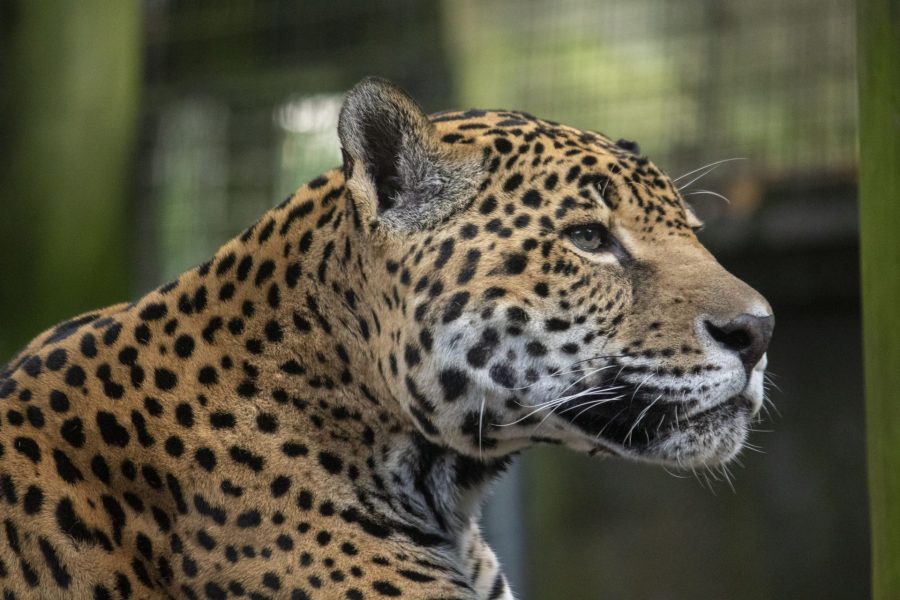

We are heartbroken to share that our jaguar, Mulac, has passed away.
It is with heavy hearts that we announce the passing of our jaguar Mulac. At nearly 21 years old, he had far surpassed the median life expectancy for his species in both human care and in their natural range.
Last week, animal care staff noticed that he was experiencing an increased difficulty walking. “Because temperatures had dropped, we closely monitored Mulac’s condition over the past few days to see if there would be improvement when the weather warmed up,” said Lauren Hinson, the Zoo’s director of animal programs.
Over the past week, veterinary staff began doing laser therapy sessions to manage his arthritis and provided the big cat with anti-inflammatory medication to reduce pain. Unfortunately, his condition worsened on Thursday. The difficult, but compassionate, decision was made to euthanize him to prevent future suffering.
Mulac called our Zoo home for almost 9 years and even sired two cubs, Philomena and Jeannie, here with his companion, 18-year-old Masaya, who still lives at the Zoo.
“Mulac was so laidback and tolerant of his mate Masaya,” said Kerry Sweeney, a Zoo conservation manager. “She can be a handful!”
Philomena and Jeannie are now both 7 years old. “Philly,” as our keepers called her, had two now 2-year-old cubs of her own at Memphis Zoo. Jeannie lives at Baton Rouge Zoo.
“Mulac was truly one of a kind,” said Katie Milbocker, one of his keepers. “He was clumsy and sweet and always came when keepers called him over. He was the most cooperative and tolerant animal I’ve ever trained, and I believe we were able to better care for him because of this.”
Over the past few years, we have been monitoring and treating Mulac for a chronic kidney disease and arthritis. Due to his advanced age, Mulac was regularly given quality of life assessments (QLAs), which allowed us to check on his quality of life by monitoring his ongoing health issues, current medications and more objective measures like his mobility. QLAs are part of our preventative approach to animal care, which allows us to make the best possible decisions when it comes to an animal’s needs.
Thanks to this approach, our veterinary team learned of Mulac’s kidney disease before he even began showing signs of illness and started treating him. Additionally, our keepers trained Mulac to participate in voluntary monthly blood draws to monitor his condition.
Mulac’s kidney disease made it difficult to prescribe certain medications to treat his arthritis. His diet was adjusted to ensure he was at an ideal body weight that would limit the stress on his joints. We also kept him comfortable by renovating his habitat to add steps and platforms so he could safely enjoy higher vantage points. He loved to lay up high and watch everyone, Katie shared.
Mulac was known for rolling over repeatedly to get his keepers’ attention while he waited for food. His “crossed paws” pose was famous – and he enjoyed laying on top of logs and rubbing his head all over them.
“His giant head was magnificent and his ‘cauliflower ear’ gave him such character,” Kerry said. “When he would lay and cross his paws, it would bring a smile to everyone who saw him.”
Saying goodbye to such a cherished resident is especially tough for our Zoo community. We ask that you keep our staff, volunteers and guests in your thoughts.
“He was a happy, perfect cat and will be missed every single day,” Katie said.
